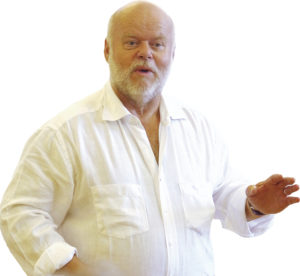Bosse Johansson, in Memoriam
By Christian Ljunggren, Choral Conductor and Artistic Director at Interkultur
My very good friend and colleague, Swedish conductor Bosse Johansson, passed away suddenly in the beautiful month of May in his home in Sweden.
Bosse was a real artist among us Swedish choral conductors; the main “theme” of his life was to show that working with children and young voices really is a way to express deep artistic thoughts and values. He made Adolf Fredrik’s Girls Choir an instrument for this artistic ambition of his and led the choir to exceptional success in appearances all over the world. To take just one example, I can mention the impressions he made with the choir on Hong Kong and China on several occasions. His philosophy as a conductor was to look upon the singers as individual personalities, and liberate them from the tendency to unification that can be an obvious threat when working with a choir. The sound of the choir – although made up of young voices – was very mature.
Early on in his career, Bosse worked with the mixed Bromma Chamber Choir, and from that time on had a great interest in contemporary music. Many Swedish composers have written work for his ensembles.
Adolf Fredrik’s Music School is unique and in many ways a frontrunner – including from a broad international perspective. With different political situations in Sweden over the years, it has not always been easy to keep this kind of school going but, together with his colleague Jan-Åke Hillerud, Bosse led the fight to keep the school open during some hard times.
Bosse has been officially recognised for his work several times. He was the first conductor to be announced Choral Director of the Year in Sweden (1986). He also won the prestigious Norrby Medal (1986) and became member 930 of the Royal Swedish Academy of Music (1999).
He will be greatly missed, not only by me and many choral director colleagues around the world, but first and foremost by the many singers whose lives, I am sure, changed during the years they sung in his choirs.
Edited by Hannah Embleton-Smith, UK
